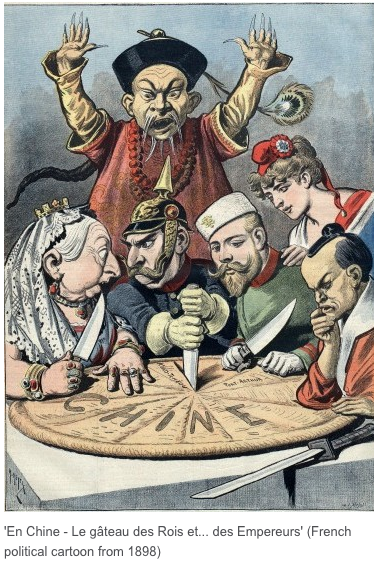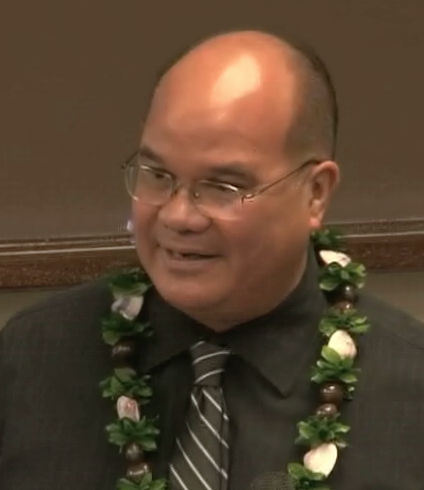From September 10-12, 2015, the United Kingdom’s University of Cambridge’s Centre for Research in the Arts, Social Science and Humanities will be holding an academic conference “Sovereignty and Imperialism: Non-European Powers in the Age of Empire.” From the conference’s website:
 “In the heyday of empire, most of the world was ruled, directly or indirectly, by the European powers. On the eve of the First World War, only a few non-European states had maintained their formal sovereignty: Abyssinia (Ethiopia), China, Japan, the Ottoman Empire, Persia (Iran), and Siam (Thailand). Some others kept their independence for a while, but then succumbed to imperial powers, such as Hawaii, Korea, Madagascar, and Morocco. Facing imperialist incursion, the political elites of these countries sought to overcome their political vulnerability by engaging with the European powers and seeking recognition as equals.
“In the heyday of empire, most of the world was ruled, directly or indirectly, by the European powers. On the eve of the First World War, only a few non-European states had maintained their formal sovereignty: Abyssinia (Ethiopia), China, Japan, the Ottoman Empire, Persia (Iran), and Siam (Thailand). Some others kept their independence for a while, but then succumbed to imperial powers, such as Hawaii, Korea, Madagascar, and Morocco. Facing imperialist incursion, the political elites of these countries sought to overcome their political vulnerability by engaging with the European powers and seeking recognition as equals.
The conference ‘Sovereignty and Imperialism: Non-European Powers in the Age of Empire’ will explore how diplomats, military officials, statesmen, and monarchs of the independent non-European states struggled to keep European imperialism at bay. It will address four major aspects of the relations of these countries with the Western imperial powers: armed conflict and military reform (Panel 1); capitulations, unequal treaties, and subsequent engagement with European legal codes (Panel 2); royalty and courts (Panel 3); and diplomatic encounters (Panel 4). Bringing together scholars from across the world, the conference will be the first attempt to provide comparative perspectives on the non-European powers’ engagement with the European empires in the era of high imperialism.”
 Dr. David Keanu Sai was 1 of 15 scholars from across the world that was invited to present their research and expertise that centers on non-European States. Dr. Sai’s research focuses on the Hawaiian Kingdom as an independent and sovereign state and its continuity to date under an illegal and prolonged occupation by the United States of America since the Spanish-American War. He will be presenting a paper titled “Hawaiian Neutrality: From the Crimean Conflict to the Spanish-American War.” The following is Dr. Sai’s abstract for his paper:
Dr. David Keanu Sai was 1 of 15 scholars from across the world that was invited to present their research and expertise that centers on non-European States. Dr. Sai’s research focuses on the Hawaiian Kingdom as an independent and sovereign state and its continuity to date under an illegal and prolonged occupation by the United States of America since the Spanish-American War. He will be presenting a paper titled “Hawaiian Neutrality: From the Crimean Conflict to the Spanish-American War.” The following is Dr. Sai’s abstract for his paper:
“Only a decade since the Anglo-French proclamation of November 28, 1843 recognizing the Hawaiian Islands as an independent and sovereign State, the Hawaiian Kingdom would find itself being a participant State, during the Crimean conflict, in the abolishment of privateering and the formation of international rules protecting neutral goods. This set the stage for Hawaiian authorities to secure international recognition of its neutrality. Unlike States that were neutralized by agreement between third States, e.g. Luxembourg and Belgium, the Hawaiian Kingdom took a proactive approach to secure its neutrality through diplomacy and treaty provisions by making full use of its global location, which undoubtedly was double-edged. On the one hand, Hawai‘i was a beneficial asylum, being neutral territory, for all States at war in the Pacific Ocean, while on the other hand it was coveted by the United States for its military and strategic importance. This would eventually be revealed during the Spanish-American War when the United States deliberately violated the neutrality of the Hawaiian Islands and occupied its territory in order to conduct military campaigns in the Spanish colonies of Guam and Philippines, which was similar, in fashion, to Germany’s occupation of Luxembourg and the violation of its neutrality when it launched attacks into France during the First World War. The difference, however, is that Germany withdrew after four years of occupation, whereas the United States remained and implemented a policy of ‘denationalization’ in order to conceal the prolonged occupation of an independent and sovereign State. This paper challenges the commonly held belief that Hawai‘i lost its independence and was incorporated into the United States during the Spanish-American War. Rather, Hawai‘i remains a State by virtue of the same positive rules that preserved the independence of the occupied States of Europe during the First and Second World Wars.”

This is….AWESOME!!!
Love to read this paper at some point.
To add to the mix, the U.S. orchestrated the destabilization of the Hawaiian Kingdom’s government in 1887, known as the Bayonet Constitution. It then proceeded to plot the takeover of its country, control and power over the Hawaiian Kingdom in spite of the Hawaiian Kingdom subjects’ objections. The U.S. invasion of 17 January 1893 was a culmination of the U.S. plot to takeover Hawaii; the lawless belligerent occupation of 1893, set up a Provisional government and in reality it became the U.S. military civilian arm to govern the Hawaiian Kingdom. Through force, U.S. military protection, intimidation, they alienated the Hawaiian Kingdom subjects from their governance and unalienable rights.
The Turpie resolution of 1894 threatened U.S. officials and other world nations from interfering in Hawaii’s situation as it would be an unfriendly act against the United States of America and stated that it was wholly the right of the people of Hawaii to its governance and polity. In 1897, it was again protesting the annexation of Hawaii to the U.S.A. via the Ku’e Petitions of 1897. This petition sent to the U.S. Congress helped its Congress to again reject the treaty of annexation and the cessation of Hawaii to the U.S.
The lawless U.S. belligerent occupation continues to this day with continuous violations of the law of occupation and the violation of the Hawaiian Kingdom’s international status as a neutral nation which was established in 1854. Hawaiian Kingdom subjects never recognized the authority nor jurisdiction of the Republic of Hawaii or loyalty to it.
The ipso facto Republic of Hawaii understood it didn’t have the support of the Hawaiian Kingdom subjects and barred all Asians and Kingdom subjects from participating in its governance within the Hawaii. This means, they were not citizens of the Republic of Hawaii established by the U.S.A. All lands within the Hawaiian Kingdom were private lands with allodial title attached to them with rights to native tenants. This means, the Republic of Hawaii had nothing to cede to the U.S. except its name.
The U.S. proclaimed all citizens of the Republic of Hawaii would now become United States citizens. Well, that’s okay since most were already U.S. citizens. It’s from there that the fraud and deception continues. The Hawaiian Kingdom’s government and its departments/bureaus are still intact; only its name has been changed and today is known as the State of Hawaii government.
The Hawaiian Kingdom subjects remain the same and Asians still belong to the country they came from unless they have naturalized to the Hawaiian Kingdom or the United States. Everything mentioned are undisputed facts.
Tane, aloha e,
Just a correction to date we received our nation state recognition: 1843 England and France and 1844 Armerica.
Mahalo nui for your contribution to our education.
Anake Doreene
opps, kalamai: America
I was not speaking of Hawaii’s formal recognition as an independent sovereign nation which was created in 1795 by Kamehameha I and formally recognized since 1843.
The International-recognized status as a NEUTRAL country was in 1854. In fact, Hawaii’s representative was actively involved in setting the international guidelines for neutrality status which today, Switzerland now experiences. Other countries have also declared themselves to be a neutral nation; including the wolf-in-sheep’s-clothing, the U.S.A. I doubt very much the U.S. can declare itself a neutral nation today since it doesn’t follow the guidelines to be a truly neutral nation.
I missed that. I’ll read up on it. Mahalo nui for the info.
imua e keanu!
I look forward to read the paper, as well. Perhaps upon your return to Kauai, you could present the highlights and field questions. Thank you for your service! It’s critical!
Soon the whole world will know the lie.
There goes that Dr Sai again
Teaching Truth
Today Tutu was showing her new t-shirt to me .
In the front it read.
Hawaiian Kingdom Still Exists.
On the back the
National Flag
She’s so proud
Tomorrow is Queen Liliuokalani birthday
Wishing you a Happy Birthday
May all your wishes come True
God Bless the Hawaiian Kingdom
Awue! The audience at that conference is going to be enduring one heck of an earful! Not only will they hear Hawaii’s legal history, but they’ll also hear Hawaii’s current state of armed conflict with the United States, in which the effects are highly profound, historical and globally effective! Go get ’em, Dr. Sai!
The “Hawaiian Tsunami” as I call this, is getting bigger and bigger! Either willingly surf the wave, or get on it last minute, or get worked hahahaha!
Aloha!